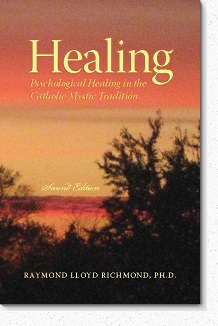
I
don’t understand the story of Jephthah and his daughter. Why did God
stop Abraham from sacrificing Isaac but then allow Jephthah to sacrifice
his daughter? It doesn’t seem fair.
 hen God told Abraham to sacrifice
Isaac, God had no intention of allowing the sacrifice to be completed. It
was all a test, meant to teach Abraham total trust in God, so as to get the
chosen people—Abraham’s descendants—started off on the right
foot, so to speak. hen God told Abraham to sacrifice
Isaac, God had no intention of allowing the sacrifice to be completed. It
was all a test, meant to teach Abraham total trust in God, so as to get the
chosen people—Abraham’s descendants—started off on the right
foot, so to speak.
The story of Jephthah is, well,
a different story.
The Story of
Jephthah
The story of Jephthah isn’t
very well known to most persons, but it does occur in the readings for the
weekday Mass. In fact, it occurred the day before you asked this
question.
In this story, Jephthah, on his
own initiative, without God’s asking him, made a
vow to offer a sacrifice if he were successful in
battle. To understand what that vow signified, and what happened as a result
of it, let’s examine the underlying psychology of the characters
involved.
Jephthah’s
Psychology
Jephthah had been born as the
illegitimate son of a harlot, and the legitimate members of his family
disinherited him. Doing what many persons do when feeling
victimized by their families, he acted out his
anger through
disobedience, taking up the life of a rogue
bandit. Harboring a grudge against his family, he held them in no esteem,
and when they came to him in need, asking for his help, he said, “Are
you not the ones who hated me and drove me from my father’s house? Why
do you come to me now, when you are in distress?” (Judges
11:7).
Considering this attitude, we
can understand the vow he made. Outwardly making it seem like an act of
thanksgiving to God, he really imagined that his vow to offer in sacrifice
“whoever comes out of the doors of my house to meet me” would be
a perfect opportunity to inflict revenge on his family. He was hoping that
the victim of his sacrifice would be a nice “pay back” for his
own injuries. Remember, it never entered his mind that this
“victim”—this cunning revenge for his having being
victimized—would be his own beloved daughter, rather than some
despised relative.
Now, speaking of Jephthah’s
daughter, let’s look at the psychology of her demise.
The Psychology
of Jephthah’s Daughter
On hearing the news of her
father’s victory, Jephthah’s daughter made a flamboyant show of
triumph with dancing and music—much like
sports fans do today when a favorite sports team
wins a game. It was this show of vanity that doomed her, for if she had stayed
quietly at home giving thanks to God in modesty
and humility, things might have been
different.
A Vow
Fulfilled
In the end, the vow had to be
fulfilled. God didn’t let Jephthah off the hook. Why? To make a point
about two grave sins: triumph and revenge.
When Jephthah’s daughter
mourned her virginity (Judges 11:37), she had to reflect on the fact that
she would die childless. She had to lament the fact that her vain show of
triumph had denied her father his progeny. And Jephthah had to lament the
fact that his desire for revenge had denied him his own progeny. Thus, unlike
Abraham’s sacrifice that set his progeny off on the right foot,
Jephthah’s sacrifice put an end to his progeny before it got
started.
The Foreshadowing
of Christ’s Sacrifice
In this story, then, the deep
meaning of Christ’s sacrifice is foreshadowed. On the cross, Christ
put an end to triumph and revenge, and He left us a Bloodless Sacrifice to
sustain us in our journey to our own crosses.
And how sad it is that many so-called
Christians today reject the cross as socially
irrelevant and blindly send themselves
to their own doom by continuing to imitate Jephthah and his daughter in their
vanity of triumph and revenge.

Healing
Psychological Healing in the Catholic Mystic Tradition

by Raymond Lloyd Richmond, Ph.D.

 A treasure of a resource for psychological
and spiritual healing. Information gathered from my websites is now available at your fingertips
in book form with a comprehensive index. A treasure of a resource for psychological
and spiritual healing. Information gathered from my websites is now available at your fingertips
in book form with a comprehensive index.
Psychological defenses help to protect us from
emotional injury, but if you cling to the defense mechanisms that were created in your
childhood and carry them on into adulthood—as most everyone does unconsciously—your quest
for spiritual healing will be thwarted by overwhelming resentments and conflicts.
Still, God has been trying to show you that there is more to life than resentment and
conflict, something so beautiful and desirable that only one thing can resist its pull:
hate.
So now, and in every moment until you die, you will have a profound choice between your
enslavement to old defenses and the beauty of God. That decision has to come from you.
You will go where you desire.
More information
|




